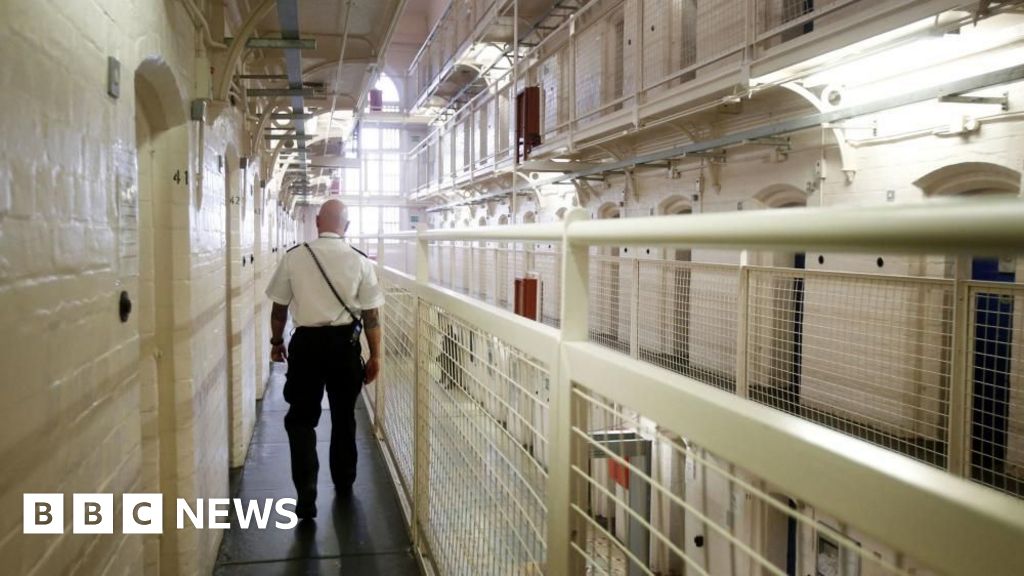ARTICLE AD BOX
 Image source, Getty Images
Image source, Getty Images
The commission has concluded that the way Wales is ruled is not sustainable
By Gareth Lewis & Adrian Browne
BBC News
Independence for Wales is a "viable" option, an expert group has concluded.
But the commission set up to consider how the country might be ruled in future has warned Wales outside the UK would face a "significant" short to medium term challenge raising enough tax revenue for public services.
Its report said transferring further powers from Westminster and creating a federal UK were also viable options.
The commission also calls for Wales to have full control of its rail network.
The Independent Commission on the Constitutional Future of Wales argues this would provide better value for money and better services for passengers.
Its interim report last year concluded that Wales' current political arrangements could not continue because they do not provide stability or prosperity.
The commission, a Labour Senedd election manifesto commitment, was set up by the Welsh government in 2021.
It is co-chaired by Prof Laura McAllister and former Archbishop of Canterbury Dr Rowan Williams and the panel included figures from the four main political parties.
Prof McAllister said it was vital that the report "acts as an impetus for change for the people of Wales in the future and we want the conversation to continue".
Image source, Getty Images
Image caption,Any path towards Welsh independence would require the UK government's involvement
The report, published on Thursday, calls choosing which path to follow a balance between risk and opportunity.
It acknowledges none of the three options are entirely in the gift of the people of Wales or the Welsh Parliament as each requires UK government involvement.
The report calls it a choice between greater control over policy while "accepting that people may be worse off financially in the short to medium term" or a "lower risk, based on whatever reforms of the current settlement can be realistically achieved" but with the chance of not improving Wales' economic prospects.
The commission does not support any one option, but concludes that:
- Enhanced devolution - increasing the powers controlled by the Welsh government - is a lower risk on cost grounds, economic stability and public finances, but "runs the risk of continued relatively poor economic performance, low incomes and poverty". There would also have to be a review of funding and reform of the House of Lords to guarantee a formal voice for the UK's nations and regions
- A federal UK - where each nation is treated on an equal basis - is potentially the most complicated option and depends partly on broad public support for greater devolution to the regions of England, which is not presently there
- Independence would mean "hard choices in the short to medium term," but would grant the power to "devise policies which reflect the priorities of the people of Wales". It notes that it took Ireland 50 years and EU membership to grow its economy to match the UK's
How are powers split between Wales and Westminster?
The Welsh government controls areas such as health and social care, local transport, housing, education and local government.
Foreign affairs, defence, the bulk of taxation, most benefits and economic policy are in the hands of the UK government.
There are also areas where both have a say, such as some economic matters, planning and rail infrastructure.
Aside from its options for the future, the commission calls for some immediate changes.
It says powers over justice, policing and rail infrastructure should be devolved to the Senedd, although Lauren McEvatt, the Conservative member of the commission, did not agree with the devolution of policing and justice.
The report recommends the removal of constraints on Welsh government finances, including its borrowing powers.
Image source, Oleksii Liskonih
Image caption,Welsh Labour, which set up the commission, is committed to Wales remaining part of the UK
The commission calls for the Sewel Convention to become legally binding - this sees the UK parliament not normally legislating in areas devolved to the Senedd without its agreement.
The commission said this has happened 11 times since the 2016 Brexit referendum.
The commission argues that all the changes would have to be accompanied by adequate funding and also recommends that another expert group examine options for the devolution of the Crown Estate.
It belongs to the reigning monarch and revenue from its land and property portfolio goes to the UK Treasury.
Through its work with the public, the commission found people in Wales to be broadly supportive of devolution, but struggling at times to see how it might benefit them.
The commission did not consider whether the Senedd should be abolished.
'Constitutional navel gazing'
First Minister Mark Drakeford called the report "a serious piece of work that deserves careful consideration and the Welsh government will be reviewing it in detail".
But Welsh Conservative constitution spokesman Darren Millar called it "constitutional navel gazing" that would not "make ambulances arrive any faster, properly staff our schools or support Welsh businesses".
He acknowledged there were "some interesting aspects of this report which will require further consideration" but said the Welsh government "should have a laser-like focus on getting to grips with unacceptable waiting lists, improving educational outcomes and better pay for hardworking people in Wales".
What happens next is out of the commission's hands, but it hopes - if and when constitutional reform is next discussed - the Welsh and UK governments have a detailed study on which to base those talks.

 1 year ago
53
1 year ago
53








 English (US) ·
English (US) ·